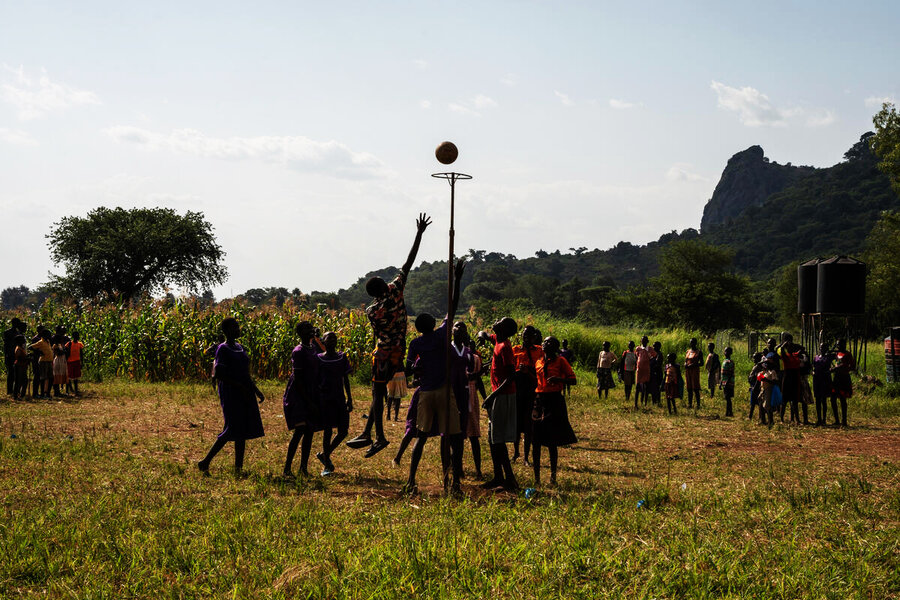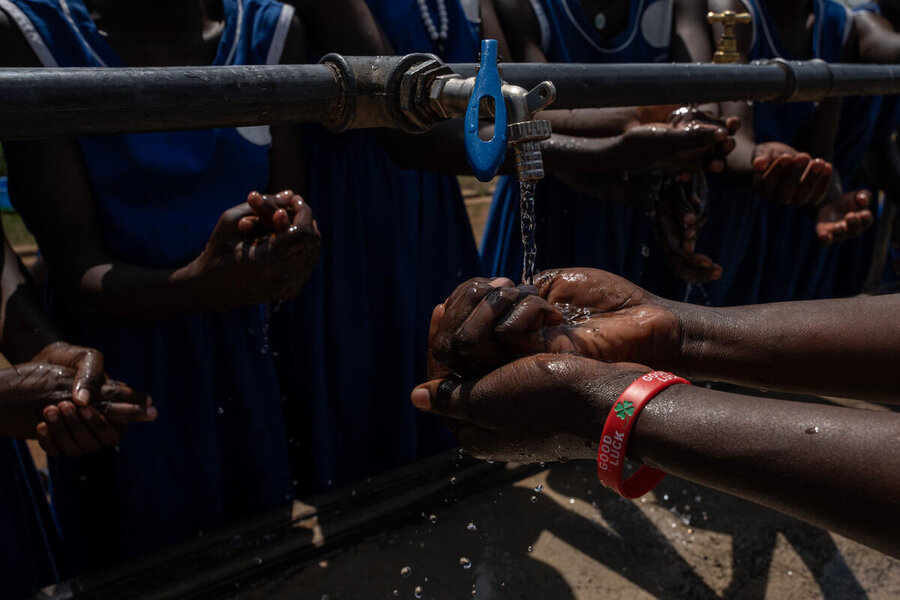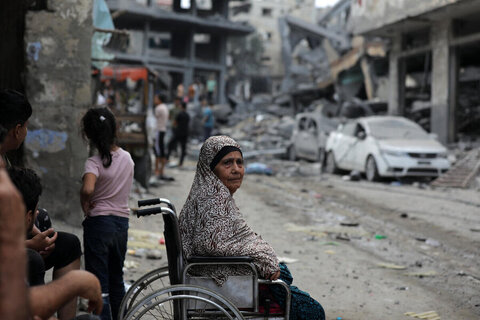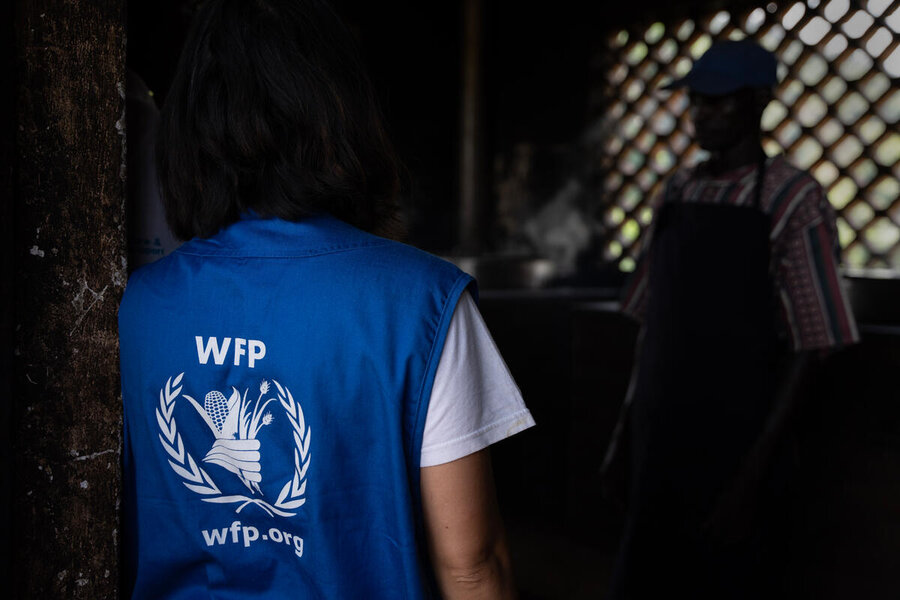Women and girls in Uganda: ‘Nothing good comes out of early marriage’

Names in this story have been changed to protect the identities of individuals.
One day, Anyuarach went to the pharmacy to buy for her father medicine. There, two men raped her.
“I did not plan to tell anyone. But then I missed my periods and I had to explain to my father what happened,” she says.
This was during the COVID-19 pandemic in 2021. Schools had closed around the world, compromising the safety of many girls in low-income and developing countries.
Then aged 17, Anyuarach had found herself spending most of her days at home in a district of the West Nile sub-region, where the majority of Uganda's 1.4 million refugees are based – more than any other African country.
“I knew I did not want to get married because nothing good comes out of early marriage. But I did not know what I would do with the baby,” says Anyuarach.
It was at this moment of despair that Anyuarach met Gladys, a mobilizer for the child-sensitive social protection programme that World Food Programme (WFP) runs in the country.

Implemented in West Nile, its nutrition component, NutriCash, provides the equivalent of US$14 per month to children aged under 2 and to pregnant and breastfeeding mothers from the poorest households. This money helps them to buy nutritious food. Of this, the mothers save US$4 every month as part of a revolving fund to help them start small enterprises.
Funded by Sweden and implemented by WFP and UNICEF, the joint programme began as a COVID-19 emergency cash transfer for both refugees and host communities. Then it evolved into a gender-transformative social protection intervention – one that recognizes that women carry the greatest responsibility of caring for children’s health and nutrition.
NutriCash sets out to provide them with information, resources and tools to take care of their families. It also works to strengthen government systems so that the interventions are sustainable, while influencing social norms and involving men in childcare.
As bombs and hunger haunt Gaza, WFP and partners push to ramp up support

With the highest concentration of refugees, West Nile is one of Uganda’s poorest sub-regions and experiences challenges with service delivery. In addition to high levels of poverty, communities face food insecurity and malnutrition exacerbated by population pressure and worsening climate shocks.
Nearly three out of ten children in West Nile suffer stunting (impaired growth due to chronic malnutrition) because of poor nutrition. Half of all children, and more than a quarter of women, are anaemic, according to the 2021 Food and Nutrition Assessment. Nearly half the deaths among children aged under 5 in this region are due to malnutrition.
“Many of us who got pregnant during COVID-19 saw NutriCash as a source of hope,” says Anyuarach. “Gladys found me and told me about the programme. I was so happy. I knew the man responsible could not help me but at least I had some hope with NutriCash money.”
According to the UN Population Fund, there was a spike in teenage pregnancies and sexual violence during the COVID-19 lockdown in Uganda. At least 600,000 teenage pregnancies were registered.
“It was very common for girls to get pregnant during COVID-19. We had no information, and the men were just waiting for us,” Anyuarach says. “We did not even know how to look after our children.”
‘I have shown a lot of leadership to my friends who got pregnant and still fear to return to school’
The first time she received the money, she bought cabbages, rice, corn meal posho (a type of cornmeal) and chickens that she now rears. Then she started saving for her return to school.
“I had seen many girls get married and then return home miserable. My dream is to become a nurse and pregnancy would not stop me,” she says.
When her baby was 3 months old in 2022, schools had just reopened. She approached the headteacher of a nearby government primary school and asked to return. She is now in Primary 7. After secondary school, she dreams of joining college.
“When Anyuarach came to me, I sat with her in my office and told her: ‘There is nothing you cannot do. You just need to concentrate,'” says Jane, the headteacher.
Jane is the only female teacher in the school. She says that Anyuarach’s eyes light up when she hears the conviction in her headteacher’s voice.

Jane explains that while government policy is that children should be allowed to be in school even when they are pregnant or after they have had their babies, they face stigma that makes it hard for them to return. In some cases, schools do not support their re-entry.
“We were happy to receive Anyuarach and we ask other girls who have had children to return to school,” Jane says. “We give Anyuarach time off to breastfeed. My door is open for her any time.”
With support from her school, Anyuarach embarked on her studies. She gained the respect of other mothers and became the lead mother in her NutriCash group, where she and other women learn how to take care of themselves and their children.
“I know how to read and write,” she says of the reason she was chosen to head the group. “I am determined. I am more knowledgeable since I joined the group and, most importantly, I at least have money to feed my child. “I have shown a lot of leadership to my friends who got pregnant and still fear to return to school.”
To other girls such as 22-year-old Immaculate, Anyuarach is a beacon of hope.
Hunger report sounds alarm on emergencies at risk of going forgotten amid crisis in Palestine
“Our society is tough,” says Sida, another young woman who got pregnant aged 19 during the COVID-19 school closure. She had just completed her O-level exams.
“I was scared. But I know there are girls who have returned to school because they at least have some money to take care of their babies,” she says. “I am saving 4,000 shillings every month from the money I receive from WFP, so that I can return to school and achieve my dreams.”
NutriCash has so far reached over 135,000 people. Through this activity, WFP has supported immediate nutrition needs, while helping teenage mothers return to school and complete their education. Education offers women and girls greater economic and livelihood opportunities which, in turn, means healthy and food-secure households.
With education and the ability to meet their food needs, women are empowered to walk away from abusive relationships. It is important that, during the UN's 16 Days of Activism Against Gender-based Violence from 25 November, we commit to investing more in nutrition and social protection for women.
